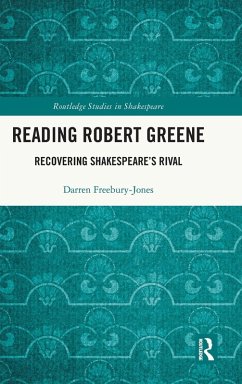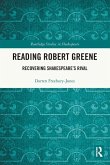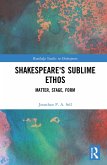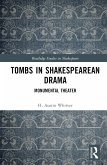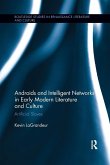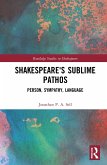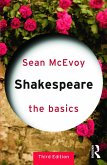Robert Greene holds a significant place in our understanding of Elizabethan literature. This book offers the most rigorous attempt yet undertaken to determine the scope of the playwright's canon through analyses of Greene's verse style, vocabulary, rhyming habits, and the dramatist's phraseology in his attested plays and in comparison to four plays that have long been on the margins of Greene's corpus: Locrine, Selimus, George a Greene, and A Knack to Know a Knave. The book defines the ranges for Greene's stylistic habits for the very first time and proceeds to identify parallels of thought, language, and overall dramaturgy that reveal a single author's creative consciousness. This volume also casts light on Greene as a more collaborative dramatist than has hitherto been acknowledged. Through emphasizing the immediate surroundings in which Greene was writing - the flourishing of popular theatres in two compact areas of London, in which each theatre company and their dra-matists kept a close eye on what their competitors were producing - Greene emerges as an influential playwright, whose restored oeuvre enables us to establish new ways in which his dramatic methods impacted other writers of the period, including Shakespeare.
"Reading Robert Greene makes a persuasive case for Greene's significance as an author who not only helped to define the Elizabethan stage, but also wrote some fine, underrated plays...the book demonstrates that attribution studies, especially those using digital methods, work best when practised by perceptive literary critics like Darren Freebury-Jones."
-- Andrew Hadfield, The Times Literary Supplement (TLS)
"The book is impeccably researched and concisely written. It makes a clear argument about stylistic versatility of Greene's drama, his interaction with Shakespeare and other playwrights, and about the significance of his dramaturgy and style in the context of other drama of the late Elizabethan period. It also restores the canon of Greene's drama and revises its chronology.... This comprehensive study of Greene's poetics makes a significant and original contribution to scholarship."
--Goran Stanivukovic, Renaissance and Reformation
"This is a very important book ... It compellingly discusses the evolution of Greene as a playmaker and fully reveals the extent of his influence on contemporary and succeeding dramatists and companies. Freebury-Jones's firm grasp on the devices, tropes, and techniques of classical rhetoric is coupled with an invariably responsible handling of the evidence. Reading Robert Greene: Recovering Shakespeare's Rival marks an enthusiastic new beginning for Greene Studies."
--Domenico Lovascio, Archiv für das Studium der neueren Sprachen und Literaturen
"Darren Freebury-Jones's book is the most serious attempt in over a century to solidify Greene's canon and assess his importance...This is a significant undertaking and major scholarly achievement...a wonderful introduction to any reader who is interested in learning more about Elizabethan drama."
--Blaine Greteman, Philological Quarterly
"Although Reading Robert Greene is invaluable for presenting cutting-edge quantitative-analysis-based research, its value also lies in its re-creation of the early modern theatre scene in London and the country. Freebury-Jones captures its collaborative, creative energy and offers endearing portrayals of its unique characters, especially Greene. He provides many new facts and compelling, nuanced readings of Greene's idioms, themes, dramatic structures, stage directions, and props ... Freebury-Jones has written a captivating study of Greene's dramatic work... informative, well researched, and provocative. What self-respecting Greene scholar would not be excited about the conversations to come?"
--Kyle Louise DiRoberto, Early Modern Literary Studies
"Darren Freebury-Jones's Reading Robert Greene: Recovering Shakespeare's Rival is a significant contribution to early modern attribution studies as it purposes to establish Greene's canon of solo and collaborative works and evaluate its significance. His works are studied within the context of Elizabethan literature to illuminate the network of influences among playwrights ... Freebury-Jones convincingly emphasizes Greene's 'historically and dramatically important' role as a dramatist and paves the way for the reappraisal of other playwrights of the period."
--Cristina Paravano, The Year's Work in English Studies
-- Andrew Hadfield, The Times Literary Supplement (TLS)
"The book is impeccably researched and concisely written. It makes a clear argument about stylistic versatility of Greene's drama, his interaction with Shakespeare and other playwrights, and about the significance of his dramaturgy and style in the context of other drama of the late Elizabethan period. It also restores the canon of Greene's drama and revises its chronology.... This comprehensive study of Greene's poetics makes a significant and original contribution to scholarship."
--Goran Stanivukovic, Renaissance and Reformation
"This is a very important book ... It compellingly discusses the evolution of Greene as a playmaker and fully reveals the extent of his influence on contemporary and succeeding dramatists and companies. Freebury-Jones's firm grasp on the devices, tropes, and techniques of classical rhetoric is coupled with an invariably responsible handling of the evidence. Reading Robert Greene: Recovering Shakespeare's Rival marks an enthusiastic new beginning for Greene Studies."
--Domenico Lovascio, Archiv für das Studium der neueren Sprachen und Literaturen
"Darren Freebury-Jones's book is the most serious attempt in over a century to solidify Greene's canon and assess his importance...This is a significant undertaking and major scholarly achievement...a wonderful introduction to any reader who is interested in learning more about Elizabethan drama."
--Blaine Greteman, Philological Quarterly
"Although Reading Robert Greene is invaluable for presenting cutting-edge quantitative-analysis-based research, its value also lies in its re-creation of the early modern theatre scene in London and the country. Freebury-Jones captures its collaborative, creative energy and offers endearing portrayals of its unique characters, especially Greene. He provides many new facts and compelling, nuanced readings of Greene's idioms, themes, dramatic structures, stage directions, and props ... Freebury-Jones has written a captivating study of Greene's dramatic work... informative, well researched, and provocative. What self-respecting Greene scholar would not be excited about the conversations to come?"
--Kyle Louise DiRoberto, Early Modern Literary Studies
"Darren Freebury-Jones's Reading Robert Greene: Recovering Shakespeare's Rival is a significant contribution to early modern attribution studies as it purposes to establish Greene's canon of solo and collaborative works and evaluate its significance. His works are studied within the context of Elizabethan literature to illuminate the network of influences among playwrights ... Freebury-Jones convincingly emphasizes Greene's 'historically and dramatically important' role as a dramatist and paves the way for the reappraisal of other playwrights of the period."
--Cristina Paravano, The Year's Work in English Studies

